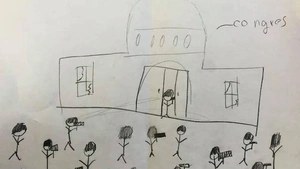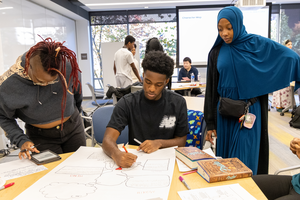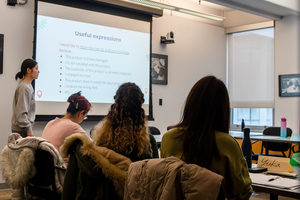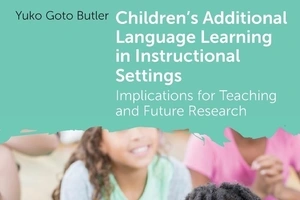Faculty Expert
-
Ameena Ghaffar-Kucher
Advanced Senior Lecturer
Policy, Organizations, Leadership, and Systems Division
How do you talk to your child about a violent attack on American democracy shown on television in real time?
Don’t approach it as a one-time, high-stakes talk, suggests Penn GSE’s Ameena Ghaffar-Kucher, host of The Parent Scoop podcast. Instead, think of it as an ongoing conversation where you and your child can learn from one another.
While the insurrection is scary for people of any age, parents and caregivers can help their kids think about what is happening and what it means. Ghaffar-Kucher offers these suggestions:
Start by listening
Try to understand what your kids already know (or think they know), and what connections they are making between the insurrection mob and other events in history and culture.
Here is how teachers can address the attack in their classroom.
Parents, especially parents of younger children and tweens, are often surprised at the depth of their child’s knowledge. What did they learn? How did they learn it? How are their friends talking about it? What lessons are already starting to form in their mind?
Let your children take the lead and be open to them asking you questions. Respond in appropriate language. And if you don’t have an answer, tell them you don’t know and that you will follow up – and then be sure to follow up.
Speak in clear language
Adults regularly talk to one another in coded language, to the point that we might not realize we do it. Avoid euphemistic phrases when talking to kids, especially young children. Be sensitive to their age and maturity levels, but be direct and don’t sugarcoat the truth.
Also, avoid framing this insurrection in “good people/bad people” language. Instead, talk about the bad actions taken by the people who attacked the Capitol, why the people said they were taking those actions, and why they were dangerously wrong.
Be prepared to talk about the white supremacist and violent roots of this attempted coup. But understand that this conversation will be different for every family. If you don't regularly talk about these subjects with your children, don’t try and over-explain in one talk. Instead, follow where your child’s curiosity and concerns lead, and emphasize that you will keep talking about this and other events in the weeks and months to come. And then educate yourself to be able to have those conversations.
Make the news a family event
Many of us who grew up with a newspaper on the breakfast table or the evening news on the TV now consume news in private, on our cell phones screens. We don’t watch together as families, and we talk less about the significance of events happening in the country and around the world.
If you aren’t already, this would be a good time to find a trusted news source and at least listen to the daily headlines together, and talk about them. You’ll help build your child’s media literacy skills.
Teenagers are consuming news on their own from a variety of sources. Ask them to bring what they are learning to your attention, because this should truly be a conversation, not a lecture. Expand their news sources and help them become more critical consumers of news.
- More from The Parent Scoop: Discussing media literacy with PBS' Amna Nawaz

Subscribe to the Educator's Playbook
Get the latest release of the Educator's Playbook delivered straight to your inbox.
Media Inquiries
Penn GSE Communications is here to help reporters connect with the education experts they need.










